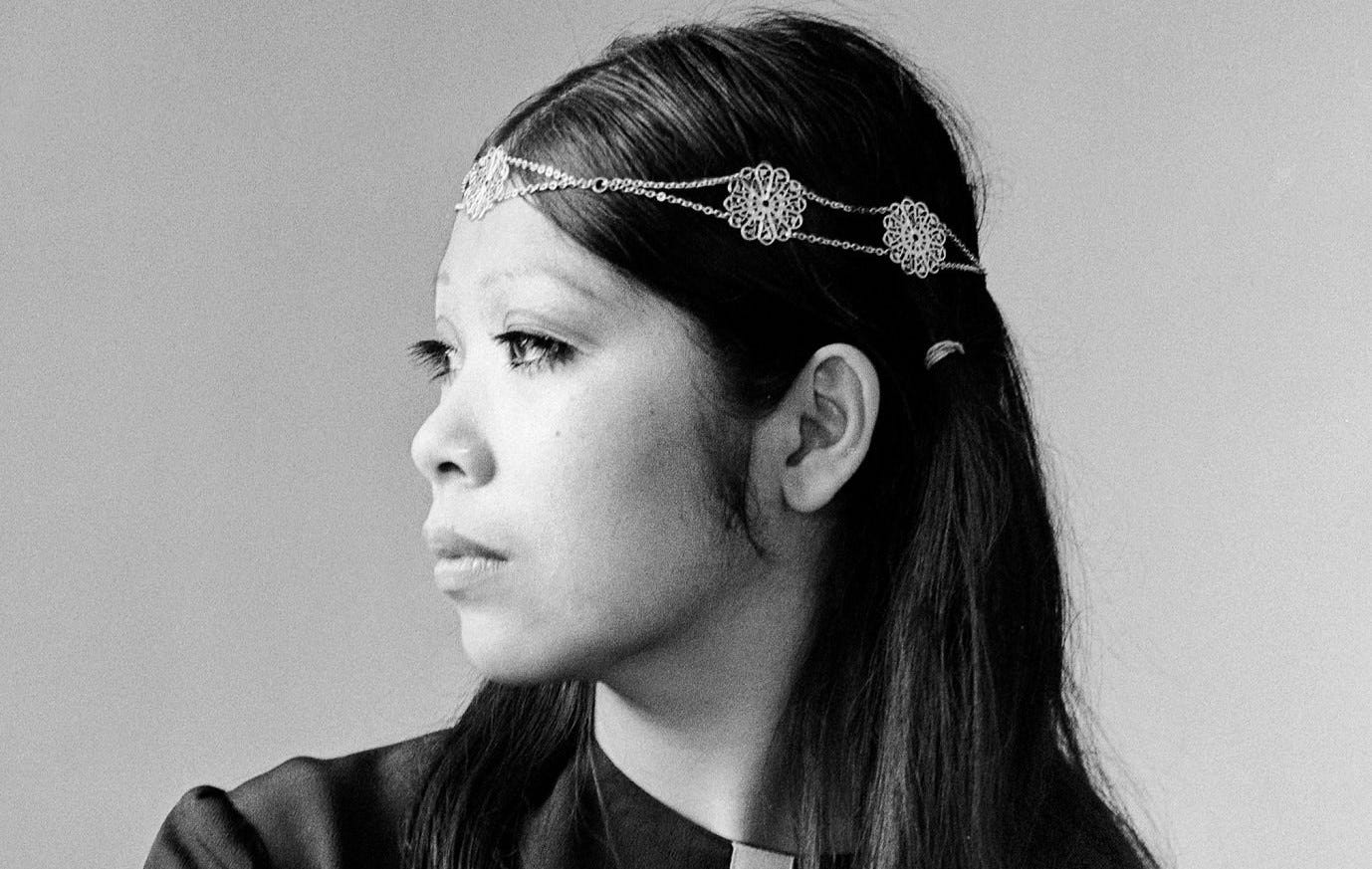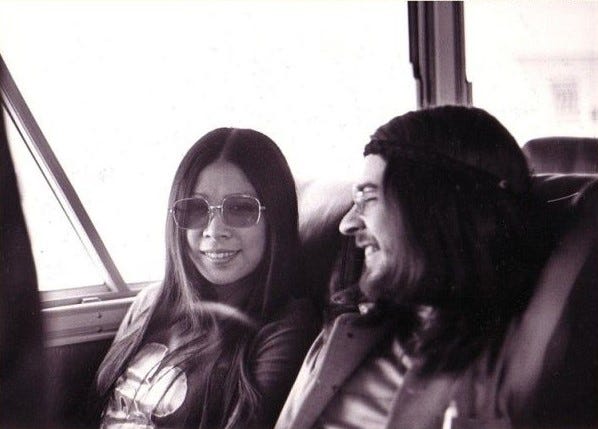(Baron Wolman)
I’ve referenced the 1969 Rolling Stone issue called ‘Groupies and Other Girls’ a lot on here since it was the original expose on the famous girls behind the stage. Despite the title of the piece, it’s unsurprising most of the ladies profiled are generally portrayed as flirty groupies and not much as ‘other girls.’ But reading between the lines and providing personal research, you’ll find there are some genuinely interesting women in the alternate category. Fashion designer Genie Franklyn, radio DJ and TV VJ Raechel Donahue, models Sally Mann and Catherine James, etc. A gal who particularly stands out is Judy Wong. One of the few women of color included in the issue, Judy was yet another young person in the right place at the right time. Born and raised in Los Angeles, Judy graduated from UC, Berkeley in 1965 before living it up in San Francisco in the late 1960s, London in the early 1970s, and back to Hollywood in the late ‘70s and 1980s. As a San Fran resident, she ran her own clothing boutique called Passionflower in the North Beach region where members of acts like Jefferson Airplane, Big Brother & the Holding Company, the Cockettes and Blue Cheer shopped. Her roommate, English model and music muse Jenny Boyd, also worked at Passionflower. Through Jenny, Judy met the band Fleetwood Mac, whose drummer, Mick Fleetwood, was in a relationship with Jenny and would later be her first husband.
Judy herself was never romantically involved with any of the many guys to join FM over the years, but she might have gotten something even better out of the affiliation. From 1969 to 1987, Judy was the group’s official secretary and confidant. The Californian witnessed the band evolve from local UK blues-rock to one of the world’s biggest pop-rock groups while forming genuine friendships with the members. She was also said to be a ‘spiritual advisor’ to FM as well as an amateur photographer. It was actually Judy who introduced the Mac to their frontman from 1971 to 1974, American singer-songwriter Bob Welch. Additionally, Judy was married to bassist Glenn Cornick [of Jethro Tull and Wild Turkey fame, and Bob’s future bandmate in the power pop band Paris] in 1970-72. The legend goes that the last event guitar icon Jimi Hendrix attended before fatally overdosing in 1970 was a birthday party for Judy.
(Emerson - Loew)
About a year into working for the band, a song called ‘Jewel-Eyed Judy’ was composed as an ode to Judy on FM’s 1970 LP ‘Kiln House.’ Though Mick, John McVie and Danny Kirwan are listed as the writers on the album sleeves, the track was actually written by Jenny and another band member, Christine McVie. Judy’s name can also be spotted in the ‘thank you’ section on the credits of the albums ‘Tusk’ (1979) and ‘Tango in the Night’ (1987). She’s also mentioned frequently in both of Mick’s memoirs, My Life and Adventures in Fleetwood Mac (1990) and Play On (2014), and was interviewed in Richard Journo’s documentary Two Sticks and a Drum (2000).
Since Judy isn’t really a celebrity or artist herself, we’re not sure why she stopped being the band’s assistant near the end of their prime. It’s possible it could have been health related since she apparently began having heart problems in the 1990s. There’s a rumor she reached out to the band around that time because of money related issues as well, but all of the members declined. This is a bit concerning, since there haven’t been any negative claims or stories about Judy over the years. There’s an even bleaker rumor that there wasn’t anyone in her life when she died of heart failure in 2005 and her body was found in her apartment a week or so after she passed. But fortunately, her extended family reached out on the internet the year she died to assure fans and others that wasn’t the case. While Judy’s ending is a somber one, she’s one of the many ‘easter eggs’ to be found in rock and pop history and that’s pretty cool.






Sad